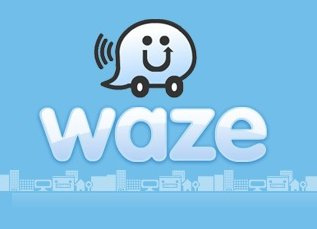Tel-Aviv Ranks Second In Start-Ups In The World

The start-up ecosystem in Tel-Aviv has rapidly grown over the past few years and is now ranked as the #2 destination behind Silicon Valley for start-ups.
While Silicon Valley attracts more venture-backed money as a whole, Tel-Aviv has one startup per one hundred people, making it the densest start-up-per-capita city in the world, according to Mashable.
Tel-Aviv has an open and welcoming culture. People are willing to share advice and, most importantly, connections with each other.
But government spending has also led to many innovative breakthroughs. The Israeli government spends 4.5 percent of its GDP on research and development, making half of Israel’s exports from the hi-tech sector. The average government investment is about 500,000 NIS, or $140,000 in U.S. dollars, and can be paid back through profits. If the company folds, the loan is written off and everyone moves on.
And the final piece for start-up success in Tel-Aviv is education. One in five Israelis attend a university, and many of these schools have close ties with tech companies. Students often participate in internships during their first year in college.
Israel has a long history of innovative thinking, according to TechWeekEurope. Technology developed in Israel includes digital printing and VoIP — infrared scanners used in Xbox Kinect — as well as WiMAX and capsule endoscopy, popularly known as ‘PillCam’.
Let’s take a look at tech companies that are currently making moves in Tel-Aviv.
Waze: Mobile Traffic Navigation App
Waze is a GPS-based mobile navigation app that crowdsources real-time navigation based on user reports. According to their “About Us” page, Waze is all about “contributing to the common good out there on the road.”
After typing in their destination address, users drive with the app, which monitors their speed and contributes traffic and other road data. Users can also take a more active role by sharing road reports on accidents, police traps or other hazards along the way, helping give other users in the area an idea of what to expect ahead.
In addition to the local communities of drivers using the app, Waze also hosts an active community of online map editors who ensure data in their areas is as up-to-date as possible.
Earlier this year, Waze was bought by Google for approximately $1 billion.
Onavo: Mobile data-saving app
Onavo, founded in 2010, is the developer of the award-winning Onavo mobile utility apps. It's also the company behind Onavo Insights, the first mobile market intelligence service based on real engagement data. Millions of users around the world use Onavo's mobile apps to take the worry out of using smartphones and tablets.
Facebook acquired Onavo earlier this week for a reported $100 to $200 million. Perhaps more importantly, Facebook also announced they would keep Onavo headquarters in Tel-Aviv. Onavo would be Facebook’s first research and development center overseas, following in the footsteps of other tech giants.
The Time Incubator
Time (Telecoms, Internet, Media, Entertainment) is focused on seed and early stage development that wants to build five to seven global brands within seven years. It is considered Israel’s best start-up incubator. Time develops seven to 10 companies every year and provides them with office space, training and access to venture capital funding. Companies under Time are given three years to make their ideas work, which is much longer than most incubators and venture capital firms are willing to allow.
“Pressure is not good for young companies,” says Ziv Min-Dieli, Incubator’s director of finance. The Time Incubator has invested $25 million since 2009 and will continue to invest in new companies with the hope that one of them will make it big.
As the start-up scene in Tel-Aviv continues to grow, more multi-national companies are bound to spring up. The next "Facebook" or "Google" may very well come from Tel-Aviv.
At least, Microsoft Ventures Senior Director Zack Weisfeld thinks so.
“Now that talent is maturing, I think you’re going to see more $1 billion companies in Israel than in the past," Weisfeld said.



